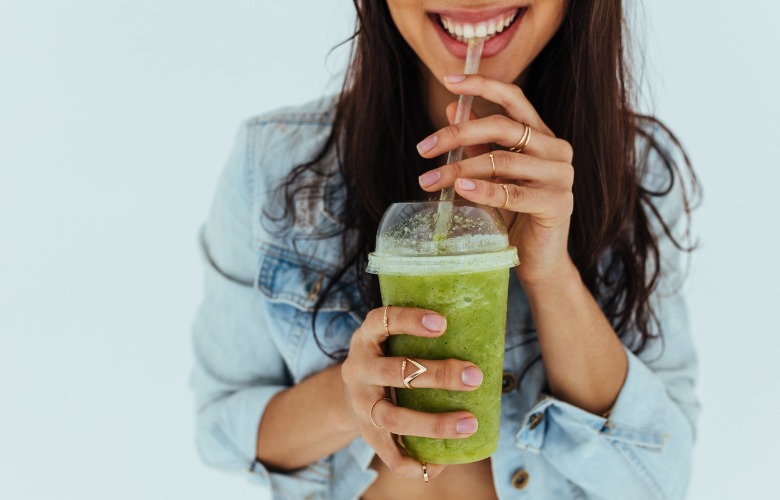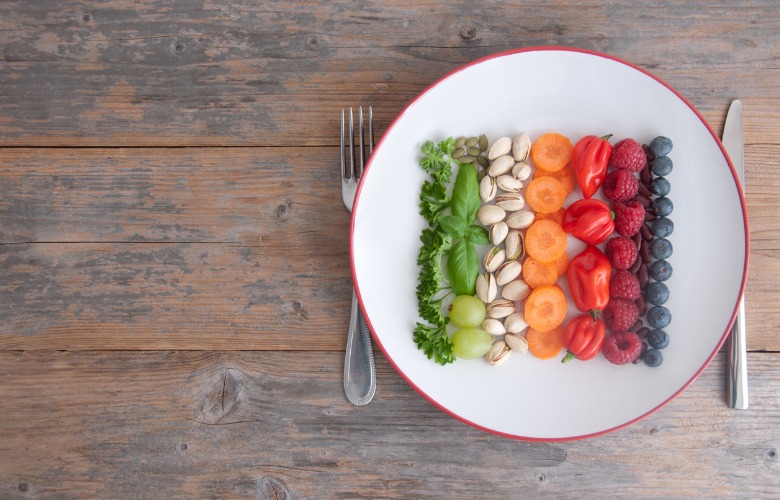Supplements to Take When on Plant-Based Diet
Posted by Jemile Nesimi Hobson, B.A on Oct 11, 2024
Are you on a plant-based diet? There are many health benefits from eating primarily plant-based foods, and however, sometimes nutrition needs may not always be met. Supplementing with protein, vitamins, minerals, and herbs can be a great way to make sure you are consuming all the nutrients you need while plant-forward eating.
What is a plant-based diet?
A plant-based diet is not a vegan or a vegetarian diet; it is a plant-forward eating pattern that focuses on most plants. This means that occasionally you eat meats, fish, and dairy, but mostly your meals come from plant-sourced foods.
Based on Mediterranean and vegetarian diets – plant-focused eating can be very healthy and satisfying. Mediterranean diets consist of mostly plant-based foods and include fish, poultry, eggs, cheese, and yogurt occasionally. A vegetarian-based diet is similar, omitting fish and poultry. Vegetarian diets can consist of semi-vegetarian, flexitarian, and pescatarian. Vegan diets contain no animal foods and only plant-sourced foods.
Health benefits of a Mediterranean diet
- Reduces heart disease risk
- Reduces risk of metabolic syndrome
- Decreases risk of frailty in older adults
- Supports mental function
Health benefits of a vegetarian diet
- Lowers risk of heart disease
- Lowers risk of high blood pressure
- Lowers risk of diabetes
- Increases longevity

Why supplements?
While it is true many of the plant-based foods you eat are packed with vitamins, minerals, phytonutrients, and more – there are specific vitamins and minerals you are missing out on. In addition, at different stages of your life, you may need more of a nutrient that you might not get enough of eating plants solely. Here are a few recommended supplements to keep your nutrition on track:
Multivitamin
A multivitamin that includes minerals is always an excellent way to ensure you are filling any nutritional gaps and making up for the nutrient-dense soil that modern farming grows food.
Vitamin D
Most Americans are deficient in Vitamin D – also known as the sunshine vitamin – because our body can make it when exposed to sunlight. However, if you wear sunscreen or live in an area where you do not get enough exposure to the sun, you recommend adding foods or a supplement to your diet. Vitamin D is found primarily in animal foods, including fish and eggs.
Vitamin D Deficiency symptoms:
- Brittle bones
- Depression
- Increased risk of heart disease
Vitamin B12
Vitamin B12 is mainly found in animal products, including fish, meat, poultry, milk, and eggs; this water-soluble vitamin is crucial for supporting normal nervous system function. Vitamin B12 is also necessary for the creation of red blood cells. While some plant-based foods like mushrooms and seaweed contain it, it isn’t enough for nutritional reasons. It is recommended that people on a plant-based diet, vegetarians, and especially vegans supplement with B12.
Iron
Iron is needed to carry oxygen in the blood, forming new DNA, energy metabolism, and growth. Fortunately, there are many plant sources for iron, including lentils, beans, peas, cruciferous vegetables, seeds, nuts, and dried fruit.
Zinc
Zinc is an essential mineral, and your body uses it for over 100 different enzyme reactions. In addition, it supports immune health, hormone function, and growth. Zinc is found in red meat, oysters, crab, and poultry. People on vegan and vegetarian diets are often deficient in zinc.
Omega-3
Omega-3 comes primarily from fatty fish like salmon, sardines, mackerel, and herring. However, plant-based sources can also be found, including chia seeds, flax seeds, and walnuts. The forms are different though the ALA form of omega-3 is found in plant-sourced foods while EPA and DHA are found in fatty fish.
Iodine
Supports thyroid function, nervous system function, and skeletal development in babies. Many people on a strict vegan or plant-based diet will find they are iodine deficient, and supplementation is important. This is because of fish, shellfish, and dairy on the primary sources of iodine. Another source is certain seaweeds such as Nori, kelp, or kombu seaweed. Iodized salt can also be used.

Add nutrients to your smoothies
You fill your smoothie with great non-dairy alternatives and fruits and veggies, but what about the protein? This is a great way to include protein in your diet and stay on point with your plant-based eating patterns.
Types of Plant-based proteins include:
Soy Protein Powder
Soy is a legume that is native to Asia and has been part of traditional diets for thousands of years – going as far back as 9,000 B.C. in China. Often soy is used by vegetarians and vegans as a meat replacement.
Probably the most popular, soy protein is an excellent alternative to dairy-based protein sources. This is because it contains all nine essential amino acids. A 30 gram serving of soy protein provides 27 grams of protein. Two essential amino acids, methionine, and lysine are only found in small amounts, which is considered a limitation.
Pea Protein Powder
Pea protein is derived from the legume–yellow split pea. High in branched-chain amino acids (BCAAs), pea protein is favored among athletes because it improves muscle protein synthesis that repairs muscle damage caused by intense exercise. Besides, it minimizes muscle degradation. It typically contains 15 grams of protein per serving and is high in all but one of the essential amino acids.
Brown Rice Protein Powder
A good alternative for people with soy allergies and digestive issues caused by pea protein – brown rice is another good source of protein. However, it only contains 4-6 grams of protein per scoop and isn’t very high in BCAAs. It is an excellent option for those with sensitive stomachs.
Hemp Protein Powder
Hemp seeds are high in complete protein (it contains all nine essential amino acids) and are known for their earthy and nutty taste. It is used as a popular nutritional supplement by athletes. A 30 gram serving of hemp contains 15 grams of protein. It is easily digested because it has the proteins albumin and edestin – easily broken down in the body. It is found that cold-pressed hemp protein is the most digestible form of this protein powder. In addition to protein, hemp is high in fiber, healthy fats (3:1 ratio of omega 6 to omega 3 fatty acids), and iron.
Chia Seed Protein Powder
An essential crop in Guatemala and Mexico, chia seeds have been cultivated for thousands of years since the Mayan and Aztec times. Chia translates to “strength” in ancient Mayan. Chia seeds are a few plant-based food sources containing omega-3 fatty acids – linoleic and alpha-linolenic (ALA) fatty acids. High in fiber, they help with digestion, support weight loss, and help you feel full longer.
Pumpkin Seed Protein Powder
Pumpkin seeds have long been known for their nutritional value, discovered in the Oaxaca Highlands of Mexico as domesticated over 7,500 years ago, known as “pepita.” Their popularity spread to Eastern Europe, India, and North America for centuries. Pumpkin seeds contain 10 grams of complete protein in 1.5 tablespoons. Pumpkin seed protein powder is rich in phosphorus, magnesium, fiber, manganese, and Vitamin K. They also contain plant sterols and omega-6 essential fatty acids and omega-9.
Sunflower seed protein powder
Containing 9 of the essential amino acids, sunflower seed protein powder is a complete protein. It is rich in both sulfur-protein methionine and cysteine. Gluten-free and easily digestible, sunflower seeds are rich in antioxidants, and Vitamin E. Benefits include aiding weight loss, energy-boosting, and skin support.












